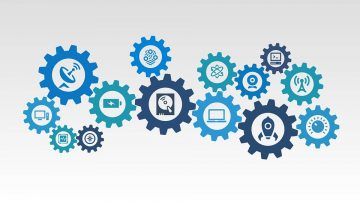In everyday speech, you can often hear people using phrase data scraping vs data crawling as if they meant the exact same thing. However, even though these two methods are potentially referred to as “the same process”, they are essentially different.
Both of these methods are crucial when it comes to retrieving data, but the information needed and the processes involved in both of them differ in many ways. In some situations, a person will choose data scraping for data extraction, while in others they will go for data crawling.
In order to avoid confusion when it comes to the subject of data scraping vs data crawling, we will explain the differences in a simple way, so that you won’t need an IT expert to help you out. Once you know the difference between these methods, you will understand how to retrieve the information you need.
The Essentials of Data Scraping
Data scraping is basically all about finding the right data and extracting it afterward, and it pulls data straight from the page. This way, it doesn’t necessarily need to be pulled from the web alone, as it can actually be taken from any place where data exists.
This may refer to basically any form of data from a variety of different sources – storage devices, spreadsheets, etc. The data doesn’t need to be from the internet or a web page, as we are talking about data scraping in a broader sense, and not specifically web scraping.
We turn to this process when we want to filter and distinguish between various kinds of raw data from various sources, and turn it into something informative and useful. When we think about data scraping vs data crawling, the first method is significantly more specific in terms of what it extracts.
Data scraping is a great method when you want to extract some info that is difficult to reach, such as commodity prices, for instance. However, there are some minor disadvantages to this process. Sometimes, the data ends up being duplicated, as this process isn’t designed to exclude the same data from different sources.
There are, however, online data scraping services out there with the ability to execute some actions that data crawling services are normally unable to carry out, such as submitting data forms, JavaScript executing, and disobeying robots.
In the context of data scraping, it is very important to mention web scraping as well, since it is a data scraping technique used to extract data from websites in particular. Web scraping services can access the web directly.
Web scraping is a manual process that can be done by a software or a service provider and can be described as a form of copying, where specific data is collected and copied from the web, most commonly into datasheets, in order to be used for later analysis.
Let’s Define Data Crawling
Data crawling or web crawling deals with large sets of data. Instead of doing it on your own, there are small to large companies providing these activities as a service which is less costly and more specific to your needs and saves you lots of time.
Crawlers or “spiders” are algorithmically designed to follow instructions and they operate similarly to Bing or Google. Data crawling service providers scan through web pages, collect and index all the relevant info, and search for links to all the relevant pages.
Data crawling services withdraw duplicate information from the text that might have been copied/pasted, as they cannot tell the difference. In the future, advanced crawlers will be able to tell the difference.
If you are gathering info this way, you have to bear in mind that web crawling needs to be done with care and attention, as in some cases it might violate the websites’ privacy rules, and such infringements may result in a lawsuit.
Data crawling services do all of these operations for you, the best and legal way possible, in order to avoid any legal entanglements, so that the risks stay minimal.
Data Scraping vs Data Crawling
Data scraping services offer solutions with a narrow set of functions that can be customized and adjusted to any scope. They can pull info on hotel rates, current stock prices, listings of real estate, etc.
On the other hand, data crawling services are far more sophisticated and are designed to dig deep into the web, regardless of what their mission might be. They are programmed to check all the possible backlinks until any related info has been carefully analyzed.
So, What is the Difference?
To get a better idea about which of these two methods suits your business requirements the most, you should consult a professional. This way you can make sure that the extraction of legal and confidential data is handled accurately and carefully, with the goal of avoiding any potential inconveniences. The professionals involved in data scraping and data crawling will ensure that you acquire all the data that your business needs in the most convenient way possible.
However, in the most cases, your business will need to combine both of these methods, so it is impossible to determine which one is better. Both scraping and crawling have their own advantages and disadvantages, but when combined they can deliver the best results possible.
Data scraping is easier to configure, as it can be customized to complete any specific task and overcome any potential obstacles that may occur in the process. Data crawling, on the other hand, requires more sophisticated adjustments of the crawlers to provide maximum coverage of the required pages.
While data crawling is great for one-time use of information, as it doesn’t require any extra space for data saving, data scraping requires a space to be saved on, bringing some costs to the users. However, the data collected this way will be available for the next research or data collection process, making it more appropriate for long-term usage. The combination of the two is suitable for organizations operating with different subgroups that need a customized approach to the data collection strategy.
For big organizations, the best solution is Answers Engine which provides is intended to provide a huge storage of scraped data for long-time use, allowing you to search the exact answers to your questions in the most optimal time-frames. Moreover, it can be used as a continuous business intelligence tool for giving companies large insights into the external market data, combining both data scraping and data crawling for optimal business results, saving you time and money.



